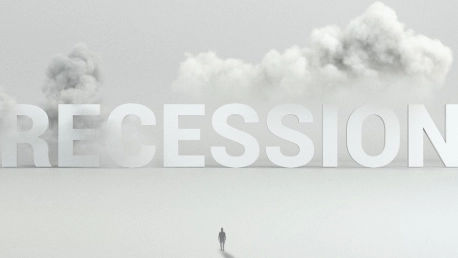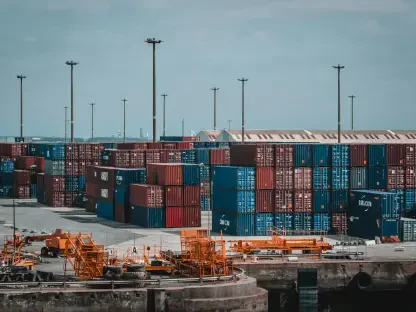The global economy has faced numerous problems over the past few years, from a pandemic that had a severe economic impact on nations around the world to surging inflation in most countries. These issues have also caused a ripple effect, impacting the flow of goods and services between countries, alongside the movement of people. Moreover, Russia’s war in Ukraine has forced millions to leave their homes, and gravely dissembled the global food market, according to the European Council. These and other ongoing issues have economists around the world speculating about the possibility of an economic downturn.
“Global growth has slowed to the extent that the global economy is perilously close to falling into recession,” the World Bank warned as it slashed its global growth estimates. The international financial institution has decided to cut its 2023 global economic growth outlook to 1.7% from its previous estimate of 3%. The World Bank proceeds to confirm that both inflation and the monetary policy tightening measures taken to contain it have contributed to a severe worsening of global financial conditions. The consequences of the Ukraine war continue to impact the global economy, causing problems in energy markets, as well as other commodity markets.
Unlike the World Bank, the World Economic Forum points to some positive signs, like the fact that the International Monetary Fund (IMF) projects a global growth of 2.9% in 2023.
Global Growth Forecasts Differ
Based on the aforementioned report by the IMF, global growth is likely to drop from an estimated 3.4% in 2022 to 2.9% in 2023. This number is marginally higher than IMF’s previous forecast, from October 2022, and could also increase to 3.1% in the following year. The IMF explains that pushing up the interest rates to fight inflation and Russia’s invasion of Ukraine are among the reasons behind this financial insecurity. Additionally, the effects of the COVID-19 pandemic in China have also prevented growth in 2022, but the recent reopening gives hope for a speedy recovery this year. When it comes to global inflation, the IMF forecasts a drop from 8.8 percent in 2022 to 6.6 percent in 2023.
Like the IMF, the World Economic Forum remains cautiously optimistic about the state of the global economy this year. According to Senior Writer Emma Charlton, one encouraging sign is the statements made by China’s Vice-Premier, Liu He, who attended the World Economic Forum’s annual meeting in Davos. He promised that China will continue to liberalize and open its markets, as the pandemic wanes. “Foreign investments are welcome in China, and the door to China will only open up further,” Liu said. He went on to add that the country’s situation is now stable, and its people are recovering quickly.
Despite these reassurances, some economists and policymakers remain worried about China’s plans. US congressman Seth Moulton later expressed his concerns about its stance on Taiwan.
The American Plan Is Working
While European Commission President Ursula von der Leyen said the European Union (EU) must try to work and trade with China, the US relies on rebuilding its economy from the ground up. According to President Joe Biden, America’s story is about progress and resilience, and it remains the only nation that has managed to emerge stronger out of every crisis. “Two years ago, our economy was reeling. As I stand here tonight, we have created a record 12 million new jobs – more jobs created in two years than any president has ever created in four years,” he explained.
A recent fact sheet released by the White House provided additional explanations about the President’s plans for boosting economic growth in the US. By creating new jobs and lowering costs for American families, the Biden Administration is helping workers, investing in the US and its people, and strengthening the economy. Progress made during the last couple of years demonstrates that the Biden Economic Plan is working. According to the data, this strategy provides an equitable economic recovery, financial security for American families, stable growth, and the best policy tools to lower inflation.
Although opinions about the state of the global economy and its probability to go into recession in 2023 differ, there are positive signs for American consumers–inflation is already slowing down.









